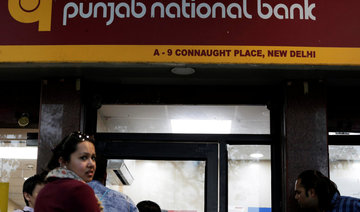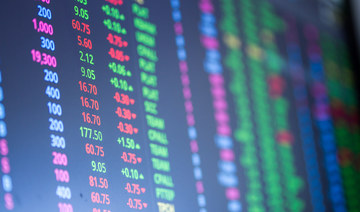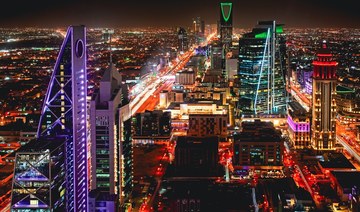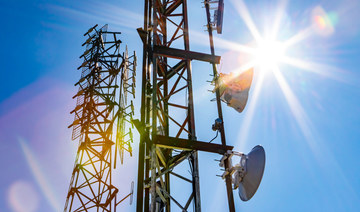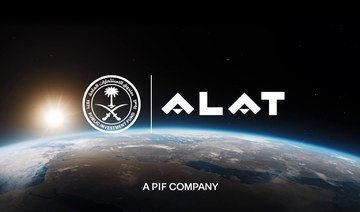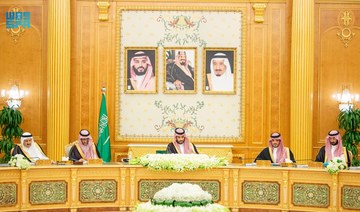MUMBAI: The extent of the unraveling fraud at India’s state-run Punjab National Bank could rise beyond the nearly $2 billion mark so far outlined by the lender, according to a source involved in the probe and court documents reviewed by Reuters.
The source, who asked not to be named, said investigators had not yet recovered all the papers and loan guarantees allegedly issued by rogue employees of the bank, and consequently believed the bank’s exposure could be greater than revealed so far.
In what has been dubbed as the biggest fraud in India’s banking history, Punjab National (PNB) and police have accused two jewelry groups — one controlled by diamond tycoon Nirav Modi and the other by his uncle Mehul Choksi — of colluding with bank employees to get credit from overseas banks using fraudulent guarantees.
Both Choksi and Modi have denied the allegations and lawyers for the two key accused PNB employees in the case have also said they are innocent.
According to court filings, the exposure to three companies controlled by Modi has been estimated at 64.98 billion rupees ($999 million), while firms controlled by Choksi have been accused of defrauding the bank of 61.38 billion rupees.
India’s federal police, the Central Bureau of Investigation (CBI), has told a Mumbai court that the amount involving Modi’s companies was likely to go up, according to the source and court filings, copies of which have been reviewed by Reuters.
The CBI told the court that its investigation had found that the fraudulent issuance of letters of undertaking (LoUs), or guarantees, through a Mumbai branch of the bank had been going on since 2010.
In papers filed on Monday, the CBI also said PNB did not have all the documents related to the LoUs, since those were returned to the borrower.
“Most of these documents are not yet recovered. The size of the fraud has now gone (up)...and the same is likely to go even higher,” the CBI said in the court filing.
PNB did not respond to requests on Tuesday seeking comment on the risk of its exposure rising further.
The bank initially reported to authorities on Jan. 29 that the jewelry groups had defrauded it of 2.8 billion rupees, or about $44 million. On Feb. 14 it said the fraud sum had reached $1.77 billion after a detailed investigation.
It raised the amount further to nearly $2 billion last week, saying it had discovered some $200 million more in fraudulent letters of credit, another form of credit guarantee, issued to Choksi’s Gitanjali group.
India’s PNB bank fraud likely to swell beyond $2 billion mark
India’s PNB bank fraud likely to swell beyond $2 billion mark

Closing Bell: TASI edges up to close at 12,460 points
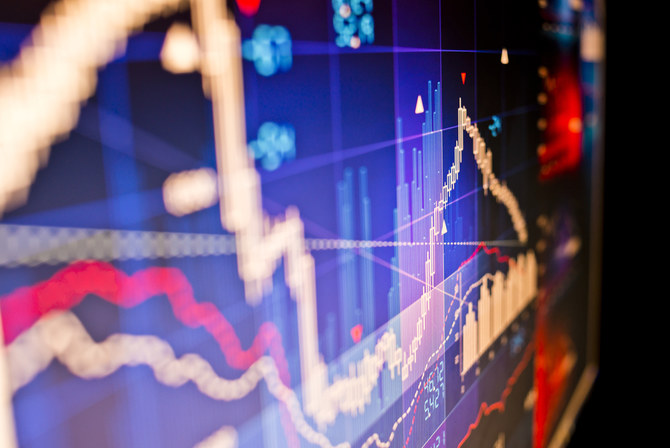
RIYADH: Saudi Arabia’s Tadawul All Share Index climbed on Wednesday, gaining 102.12 points, or 0.83 percent, to close at 12,460.11.
The total trading turnover of the benchmark index was SR8.189 billion ($2.18 billion), as 138 of the listed stocks advanced while 81 retreated.
Similarly, the MSCI Tadawul Index increased by 9.75 points, or 0.63 percent, to close at 1,557.46.
The Kingdom’s parallel market Nomu also climbed by 144.95 points, or 0.54 percent, to close at 26,886.59. This comes as 32 of the listed stocks advanced while as many as 35 retreated.
The best-performing stock of the day was Acwa Power Co., whose share price surged by 9.7 percent to SR438.80.
Other top performers include Alkhaleej Training and Education Co. and the Mediterranean and Gulf Insurance and Reinsurance Co., whose share prices soared 8.92 percent and 8.09 percent to SR37.25 and SR34.75, respectively.
Additional top performers include Al-Baha Investment and Development Co. and Malath Cooperative Insurance Co.
The worst performer was Nahdi Medical Co., whose share price dropped by 2.48 percent to SR133.60.
Other poor performers were the Co. for Cooperative Insurance as well as Jabal Omar Development Co., whose share prices dropped by 2.42 percent and 2.32 percent to stand at SR161 and SR27.40, respectively.
Additional poor performers include United Cooperative Assurance Co. and AlSaif Stores for Development and Investment Co.
On the announcements front, Al Rajhi Bank announced its intention to issue US-denominated additional tier-1 capital sukuk under its international additional tier-1 capital sukuk program established on April 18 following the board of directors’ decision on March 25.
The bank informed Tadawul that the value and terms of the sukuk offering would be decided based on current market conditions.
The sukuk will be issued through a special-purpose vehicle and will be accessible to qualified investors, both domestically and internationally.
The bank appointed Al Rajhi Capital, Citigroup Global Markets Ltd, Dubai Islamic Bank, and Emirates NBD, as well as Goldman Sachs International, HSBC, and Standard Chartered Bank, as joint lead managers and bookrunners for the potential offering.
Nahdi Medical Co. announced its results for interim financial results for the period ending on March 31, with revenues surging by 7.24 percent to reach SR2.257 billion, compared to SR2.105 billion in 2023.
The increase was primarily driven by a strong performance in the core pharma segment and a solid recovery in front shop segment led by the beauty categories.
However, the company’s net profits decreased in the first quarter of this year to SR232.9 million, marking a 4.67 percent decline compared to the same quarter in 2023.
Saudi Telecom Co. also announced its financial results for the same period with earnings increasing 5.07 percent compared to the same quarter last year, reaching SR19.1 billion.
Saudi Real Estate Co. also announced its financial results for the same period, with revenues surging by 8.8 percent to reach SR427.6 million, compared to SR393 million in 2023.
The revenue growth was mainly attributed to the increase in stc Saudi Arabia earnings by 1.2 percent, driven by the rise in commercial unit revenues by 6.7 percent and carriers and wholesale unit incomes by 5.7 percent, which offset the decline in business unit revenues.
Furthermore, stc’s subsidiaries’ gains also increased by 13 percent.
Halwani Bros. Co.’s earnings increased by 5.93 percent to SR270.36 billion compared to SR255.22 billion in its interim financial results, which ended March 31.
The reason for the increase in sales during the current quarter compared to the same period of the previous year is due to a rise in the company’s transactions in the Kingdom and its subsidiary in Egypt.
Saudi Arabia achieves highest evaluation level in UN’s Competition Law Systems Report

RIYADH: Saudi Arabia has received global recognition from a UN commission for its robust legal framework and “very strong” competition law.
The Kingdom attained the highest evaluation level in the Competition Law Systems Report for 2023, issued by the UN Economic and Social Commission for Western Asia, surpassing the “developed” level achieved in 2020, according to the Saudi Press Agency.
The Competition Law Index measures the strictness of regulations and is categorized according to the maturity of eight key criteria.
The Kingdom achieved a perfect score of seven in the index concerning regulatory frameworks for economic concentration operations.
Saad Al-Masoud, the spokesperson for the General Authority for Competition, affirmed that this advancement reflects the support GAC receives from the wise leadership to achieve the goals of Vision 2030 programs.
He added that these objectives aim to improve a sustainable business atmosphere, foster economic growth, and advance consumer welfare.
Al-Masoud further noted that this achievement is the result of significant developments in several areas, including laws combating monopolistic practices and anti-competitive agreements, as well as his authority’s efforts to review economic concentrations.
He also said that several additional factors have contributed to upholding the competitive landscape of the business sector, ensuring fairness, transparency, and adherence to reasonable competition regulations.
An initial competition system was established in Saudi Arabia in 2004, and in October 2017 the Kingdom’s Council of Ministers endorsed the change of the name to the GAC and a new organizational structure.
The authority was also made a financially and administratively independent entity, and in March 2019, another royal decree was issued approving the updated competition system.
Since its inception 20 years ago, GAC has imposed fines totaling nearly SR1 billion ($270 million) on around 252 companies found to be violating its regulations, according to a recent interview Al-Masoud conducted with Arab News.
As a prominent regulatory body, it aims to safeguard the integrity of market mechanisms while fostering innovation and diversity in products and services.
stc Bank set to launch later this year, says group CEO
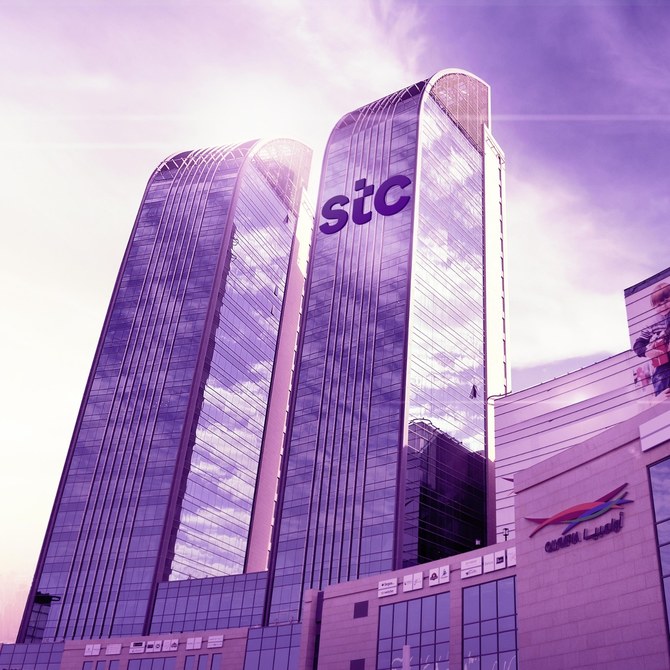
RIYADH: Saudi telecom giant stc Group has obtained official approval for the soft launch of its new banking sector subsidiary, aiming to provide Shariah-compliant fintech solutions.
The Saudi Central Bank has given the green light for the beta launch of stc Bank, with a full rollout to all customers anticipated later this year, revealed the company's CEO, Olayan Al-Wetaid, while announcing the financial results of the first quarter.
The new entity will offer banking services and financial solutions compliant with Islamic Shariah, prioritizing high security and customer protection through advanced fintech. This aligns with the ambitious goals of the Kingdom’s Vision 2030 for a prosperous diversified economy.
In its financial results announcement for the period ending March 31, the CEO explained that stc Group has strengthened its position in the telecommunications sector through a strategic partnership with the Public Investment Fund.
Earlier in April, the two entities finalized agreements for PIF to acquire a 51 percent stake in the Telecommunications Towers Co., also known as Tawal, valuing the company at SR21.94 billion ($5.8 billion).
This transaction is part of a broader merger with Golden Lattice Investment Co. to form a new entity that aims to lead the national telecommunications infrastructure, with stc Group retaining a 43.06 percent stake.
These developments are part of stc’s DARE 2.0 strategy, which focuses on unconventional growth paths and leading digital transformation in the region, Al-Wetaid stated.
The strategy has already yielded significant results, with stc’s network experiencing its highest volume of voice calls during the recent Ramadan, a 35 percent increase compared to the previous year, supported by modern digital voice technologies.
Further embodying its growth strategy, stc Group has engaged in numerous strategic partnerships and agreements, notably at the LEAP 2024 conference with global tech giants such as Huawei, Ericsson, and Samsung.
These collaborations are designed to enhance innovation and speed up digital transformation across the region.
Additionally, the group’s subsidiary, Solutions, signed a memorandum of understanding with the French Devoteam Group in February to explore IT investment opportunities globally, following Solutions’ acquisition of a 40 percent stake in Devoteam Middle East.
In its financial report, stc Group highlighted a notable growth in revenues for the first quarter of 2024, which increased by 7.76 percent compared to the previous quarter and by 5.07 percent compared to the same quarter last year, totaling SR19.1 billion.
This revenue growth was primarily driven by a 1.2 percent increase in stc Saudi Arabia’s revenues, supported by a 6.7 percent rise in commercial unit revenues and a 5.7 percent increase in carriers and wholesale unit revenues, despite a decline in business unit revenues.
Additionally, revenues from stc’s subsidiaries saw a significant rise of 13 percent.
The company also reported growth in gross profit, which rose by 5.13 percent compared to the previous quarter and by 1.65 percent compared to the same quarter last year, reaching SR9.3 billion.
Earnings before interest, taxes, zakat, depreciation, and amortization similarly showed a robust increase, rising by 16.3 percent compared to the previous quarter and by 2.07 percent compared to the same period last year, reaching SR6.4 billion.
Notably, net profit for the quarter surged by 44.50 percent compared to the previous quarter and increased by 5.69 percent compared to the same quarter last year, totaling SR3.2 billion.
Saudi Arabia poised to elevate US AI infrastructure, Alat CEO says
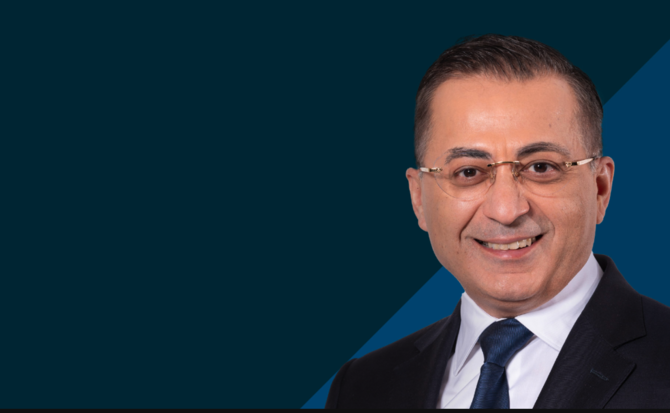
RIYADH: Saudi Arabia has the potential to serve as a crucial contributor and advocate for the development of US artificial intelligence infrastructure, according to a top official.
Speaking at the Milken Institute Global Conference in California, Alat CEO Amit Midha discussed the company’s future endeavors and collaborations with global partners in the technology sector in an interview with Bloomberg.
Launched by Saudi Crown Prince Mohammed bin Salman, Alat plays a significant role in manufacturing semiconductors and various smart technologies, including advanced industrials and next-gen infrastructure.
Midha told the event: “We can be meaningful builders and supporters for US captaincy of building AI infrastructure.”
Saudi Arabia’s ambitions in advanced technology extend to establishing data centers, nurturing AI enterprises, and bolstering semiconductor manufacturing, according to Bloomberg..
In a parallel development, the US has urged Abu Dhabi-based AI firm G42 to divest from Chinese technology. This move, in exchange for continued access to US systems powering AI applications, paved the way for a significant $1.5 billion investment from Microsoft Corp. in G42.
Speaking on partnerships with the US and China, Alat’s CEO said: “So far, the requests have been to keep manufacturing and supply chains completely separate, but if the partnerships with China would become a problem for the US, we will divest.”
According to Bloomberg reports, US officials have been engaging with their Saudi counterparts, emphasizing the necessity for Saudi Arabia to opt between Chinese and American technology as it seeks to advance its semiconductor industry. These discussions are part of broader dialogues concerning national security.
Midha highlighted the importance of forging secure and reliable partnerships with the US.
“The US is the number one partner for us and the number one market for AI, chips and semiconductor industry,” he emphasized.
Meanwhile, Alat is poised to unveil partnerships with two US tech companies by the conclusion of June, with plans for co-investment alongside a US firm.
According to Bloomberg, Midha has refrained from disclosing the names of the companies involved or specifying whether the collaborations are focused on AI, chips, or a combination of both.
Energy deals with Brazil, Japan, and Jordan signed off by Saudi Cabinet
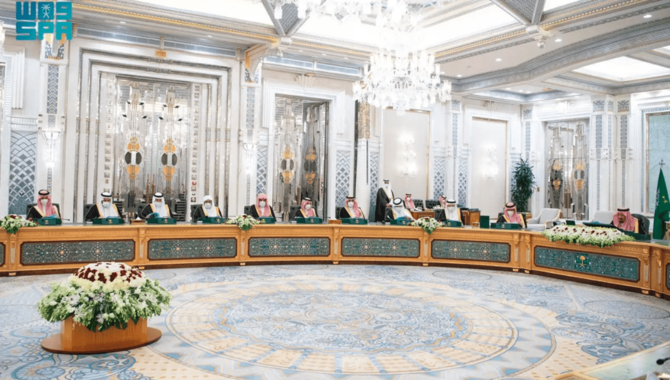
RIYADH: Saudi Arabia has approved economic and energy deals with several countries including Jordan, Brazil, and Japan, during its latest Cabinet meeting.
An agreement between the central banks of the Kingdom and Qatar focusing on cooperation in financing operations was also among the deals endorsed.
The meeting also approved various agreements between the Saudi government and other countries, including Oman, Georgia, and Morocco.
The Council of Ministers discussed updates on the Kingdom’s cooperation with various countries worldwide, focusing on efforts to enhance bilateral and collective work across multiple fields.
Among them were agreements reached between the Kingdom and both Uzbekistan and Azerbaijan in the field of energy.
These accords reflect a commitment to the sustainability and stability of petroleum markets. They also aim to advance cooperation in clean energy sectors, contributing to a globally organized energy transition. Additionally, they seek to build a more sustainable future for the three countries and the world.
In his statement to the Saudi Press Agency following the session, Minister of Media Salman Al-Dosari highlighted the Council’s appreciation for the results of the recent Arab conferences in Riyadh focused on environmental matters.
He added that the Cabinet stressed the Kingdom’s keenness to partner with regional and global entities to bolster agriculture, food security, and water resources, aligning with the country’s sustainable development goals.
During the session, the Council of Ministers cleared various agreements including an energy cooperation deal between Saudi Arabia and Jordan, as well as a memorandum of understanding between the Saudi Ministry of Energy and Brazil’s Ministry of Mines and Energy.
The Cabinet also endorsed two cooperation pacts between the Saudi Ministry of Industry and Mineral Resources and both Morocco’s Ministry of Energy Transition and Sustainable Development, and Japan’s Ministry of Economy, Trade and Industry. These pacts relate to the fields of mineral wealth, mining, and mineral resources.
Moreover, it cleared the Kingdom’s accession to the Geneva Act of the Hague Agreement concerning the international registration of industrial designs.
Additionally, the Cabinet approved the implementation of a decision made by the Gulf Cooperation Council states’ Financial and Economic Cooperation Committee regarding the final draft for exempting industrial inputs from fees. This decision was made during the committee’s 120th meeting, held in October 2023 in the Omani capital, Muscat.


